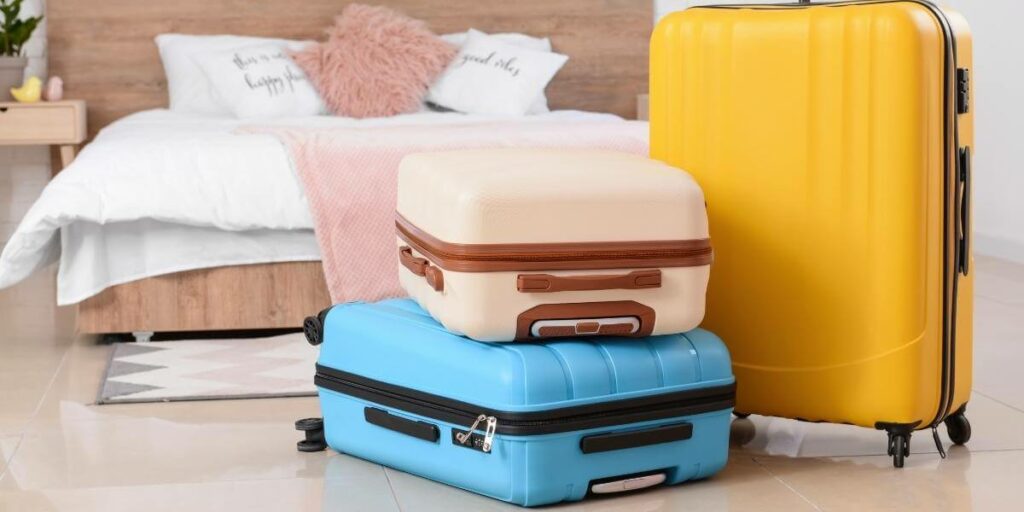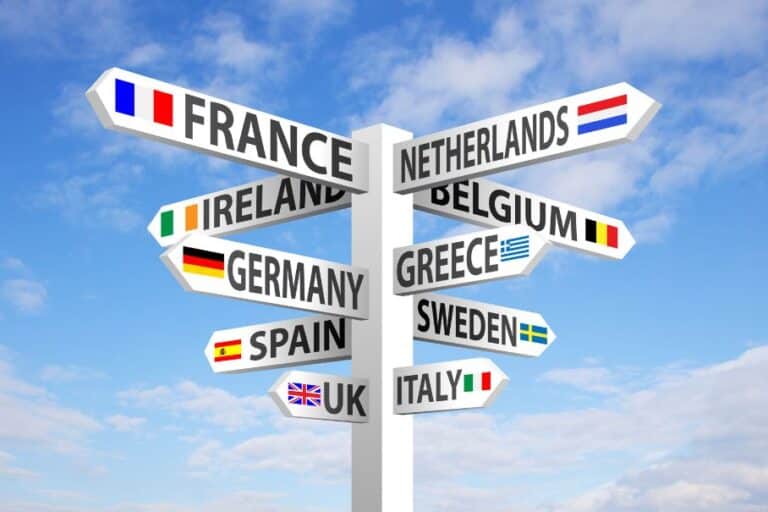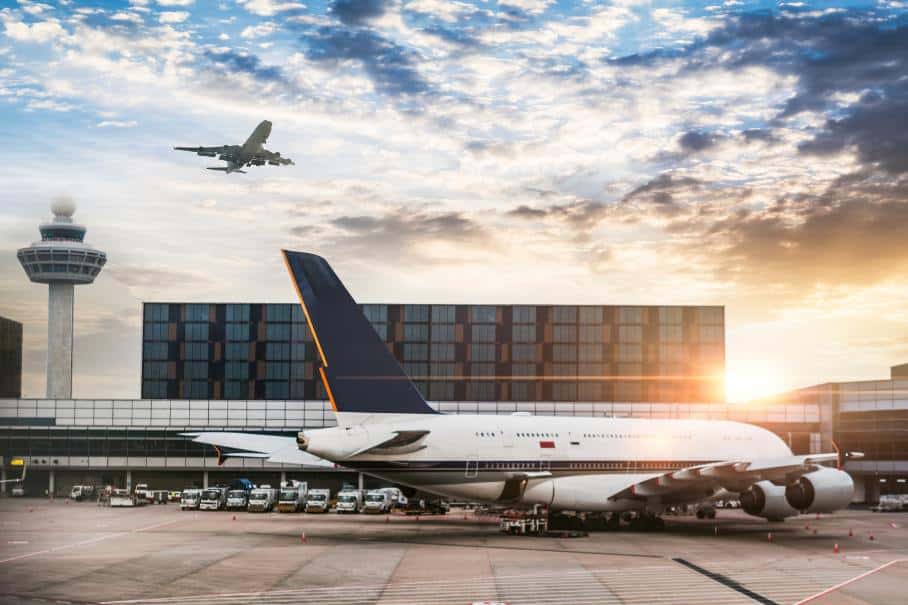Handle Travel Mishaps Like a Pro – I’ve Been There
Travel isn’t always Instagram-perfect. No matter how well you plan your trip, things can and do go wrong. I’m talking about the kind of travel mishaps you never see coming—missed flights, lost luggage, stolen wallets, last-minute cancellations. One unexpected glitch can snowball into a full-on disaster.
It doesn’t matter if you’re a first-time tourist or a seasoned traveller, these situations can hit hard. They’re exhausting, expensive, and can leave you feeling overwhelmed, especially when you’re far from home.
I’ve had my fair share of travel disasters, and trust me, they’re never fun. But over time, I’ve learned that what matters most is how you respond. Here are my top tips to help you handle travel mishaps with grace (and minimal stress).
Most common travel mishaps
Travel mishaps happen to everyone. When you’re in the middle of one, it can feel like your whole trip is ruined. But knowing what to expect can help you prepare and stay calm when the unexpected hits.
Travel mishaps: What can go wrong
While avoiding every mishap may not be possible, being aware of what can go wrong can help you take precautions and handle any obstacles more effectively should they arise. Here are some of the most common travel mishaps that can happen to you.
Transportation problems:
- Lost or delayed luggage
- Missed or cancelled flights, trains, buses, or ferries
- Booking errors or accommodation mix-ups
- Missed connections or lost tickets
Money and document issues:
- Lost or stolen ID, bank cards, or passport
- Currency exchange issues or credit card blocks
Health and safety:
- Getting sick or injured abroad
- Serious accidents or robbery
Communication and culture:
- Language barriers
- Cultural misunderstandings or local customs confusion
Uncontrollables:
- Weather delays
- Natural disasters or political unrest
- Scams targeting tourists
Tips for staying sane during travel mishaps
Travelling can be an exhilarating adventure filled with unforgettable experiences and new discoveries. However, unforeseen crises or unexpected challenges can arise, putting a strain on even the most carefully planned trips. Whether it’s a natural disaster, political unrest, or personal emergencies, it is essential to have strategies to navigate travel mishaps and crises while travelling.
1. Stay calm and assess the situation
First: breathe. It’s normal to panic when things go wrong. I’ve had those moments, like when I missed my flight from Rome to Athens because my train from Naples was delayed. Taking a mental step back helped me think clearly. I found a hotel and rebooked a flight for the next day.
Ask yourself:
– Is this a real emergency?
– Do I need medical help?
– Should I file a report or call the embassy?
– What can I control right now?
2. Figure out your next steps
Once you have assessed the situation, you can decide what to do next. What that looks like will depend on your particular situation. Travel mishaps that include missed flights, trains, ferries and so on can usually be solved by buying another ticket. When it comes to lost or stolen documents like bank cards, passports, etc., you might have to file a police report and contact your country’s embassy or consulate.
Some common fixes:
– Missed transport? Buy a new ticket. Save the receipt for insurance.
– Lost passport? Report it and contact your embassy.
– Stolen bank card? Freeze it, then use a digital wallet if possible.
Your travel insurance might cover the extra ticket you buy because of the missed connection, depending on the reason. Make sure to read the fine print carefully before you leave on vacation, just in case. Also, notify anyone at your destination who might be awaiting your arrival. That can include anyone from the hotel you’re staying at, the driver picking you up or the organizer of the tour you’re going on.
Always stay updated. If there’s unrest, weather disruptions or closures, follow local alerts. This will ensure you stay informed and make informed choices. If you ever find yourself in a situation where evacuation is necessary, contact your country’s local embassy or consulate for information and instructions. It’s generally a good idea to familiarize yourself with where those offices are in the country you’re visiting.

4. Stay in touch with someone back home
It’s always easier to deal with travel mishaps when travelling with someone else. Unfortunately, travel problems can arise when you’re on your own, which can be even more stressful, especially in a foreign country. Text a friend. Call a family member. Talk it out. Even just sharing your story helps ease the stress. Sharing your predicament might also lead to unexpected solutions, as you never know who might have a connection or a way to assist when you need help.
5. Seek local assistance
If you require immediate help or advice, contact local authorities, emergency services, or travel agencies. They have experience dealing with crises and can provide you with appropriate guidance or necessary support. In Brazil, a business contact helped me get to the hospital for treatment. In Greece, a hotel concierge helped track down a lost item. People can be amazing when you need them. Don’t underestimate the proverbial kindness of strangers that can make a massive difference in dealing with travel mishaps.

6. Adapt and be flexible
During a crisis, plans may change unexpectedly. Flexibility and adaptability to shifting circumstances are the key to making the best of a bad situation. Think of mishaps as travel plot twists, not disasters. This shift in mindset really helps. Making decisions in stressful situations is an excellent skill to have. It’s something you can develop as you deal with travel mishaps.
7. Don’t forget to take care of yourself
You can’t think straight when you’re exhausted or hungry. Taking care of your physical and emotional well-being is crucial to staying sane during a crisis. Prioritize self-care even in challenging situations. Stop, eat, hydrate, rest. Then deal with the problem.

I once left my backpack with all my gear at the airport because I was too frazzled. I realized it was missing on the train from the airport to the city centre. I was mad at myself for leaving it, which made things worse. I had to go back to the airport and miraculously found it on the bench where I left it. This would have been a worse story than it was, but in the process, I learned that there is a police station at the airport where you can report lost or stolen property.
8. Keep track of everything
When the unexpected happens, you will need to make other arrangements and incur additional costs. This can include paying for new flights or medical treatment received abroad. If you have travel insurance and the travel issues are covered, you’ll still need receipts to submit your claim later. Receipts, forms, reports—save them all. Take photos, email yourself copies, or save them to a cloud folder. It’ll make insurance claims and document replacement much easier later.
What travel mishaps can teach you
Travel is one of those things that can teach you many things, including survival skills and how to deal with stress under pressure. While travel mishaps can make you feel vulnerable and powerless, they can also provide valuable lessons and insights.
- Resilience: You bounce back faster the next time.
- Problem-solving: You get better at thinking on your feet.
- Preparedness: You plan smarter, pack better, and feel more ready.
- Patience: You stop sweating the delays.
- Cultural awareness: You learn to read the room and the local customs.
- Confidence: You realize you’re more capable than you thought.
- Flexibility: You learn to roll with change.
- Gratitude: You start noticing when things go right.
How to prepare for travel mishaps (before you go)
- Get insurance: Understand what’s covered and keep your policy number handy.
- Save copies of documents: Passports, cards, bookings—store them in your phone and cloud.
- Write down key contacts: Hotels, banks, consulates—don’t just rely on your phone.
- Add buffer time: Don’t cut it close between flights, trains or tours.
- Bring a first-aid kit: Include the meds and essentials you’ll need for your trip type.
- Pack a portable charger: And a universal adaptor—because a dead phone is useless in an emergency.
- Always have cash: Some places still don’t take cards, especially taxis and small shops.
Final thoughts on dealing with travel mishaps
I know that it’s easy to get caught up in the moment when things go wrong. Sometimes it might even feel like bad luck is following you, especially when bad things keep happening. It takes one lousy problem to throw off the whole trip, and if you dwell on it, you’ll be thrown off your game, leading to more mistakes. I know because I’ve been there.
Travel mishaps happen to everyone. And they always feel worse in the moment. But they’re also part of the story—part of what makes travel an adventure. If you can keep your cool, find help, and roll with the chaos, you’ll get through it. And who knows—this might end up being the best story from your trip.






